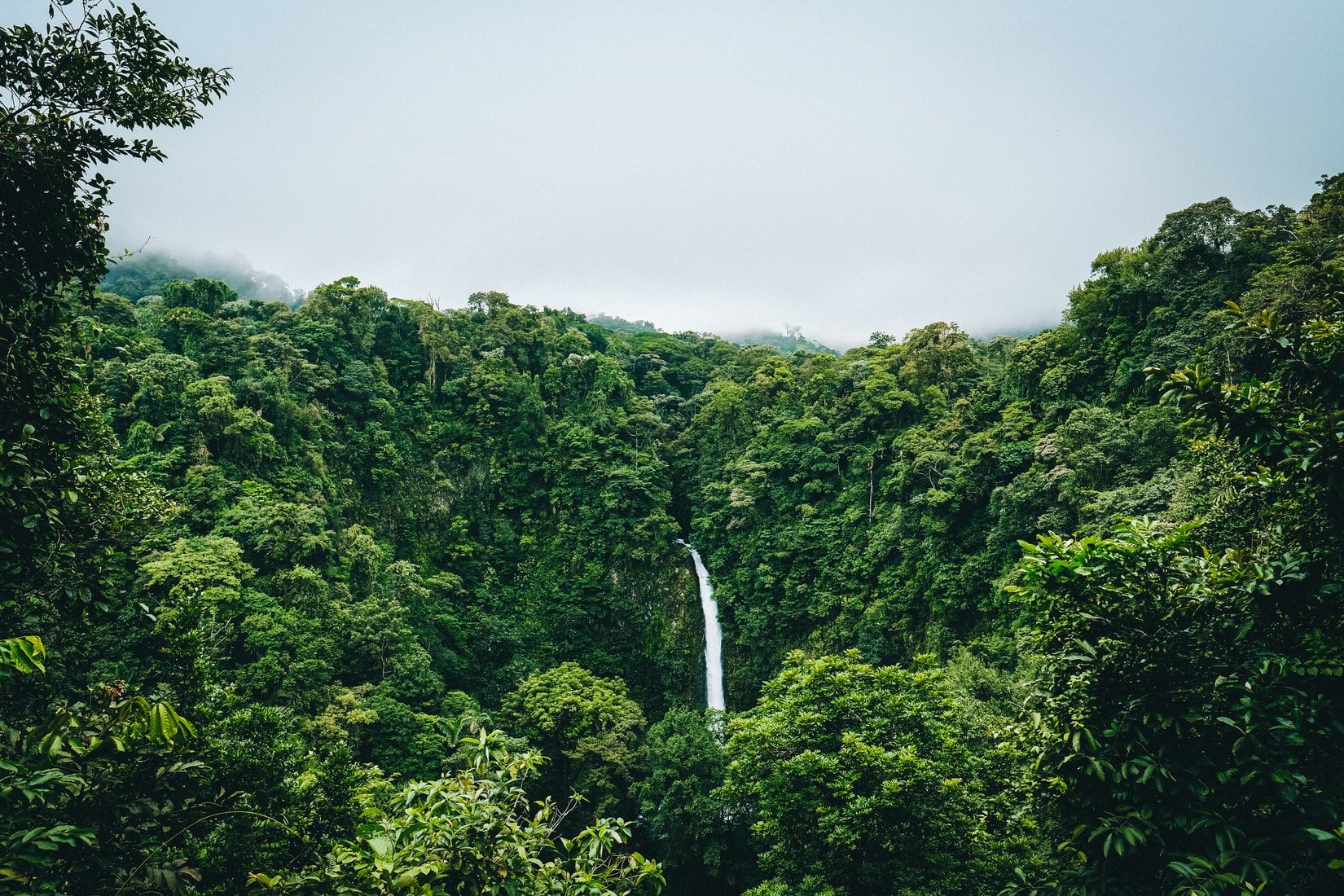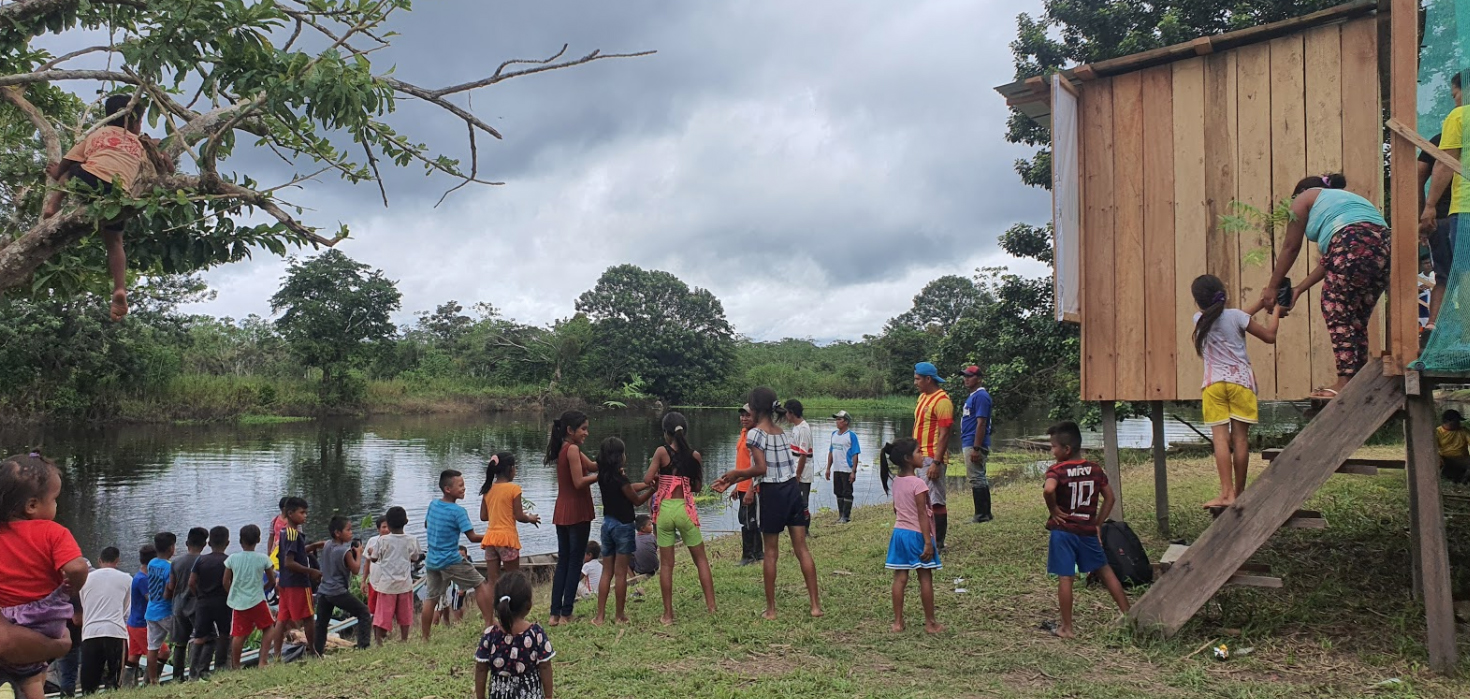How an indigenous community regrew their economy and their native land
Fernando Duran moved to Buen Jardin de Callaru six years ago. Since then, his rainforest home has been transformed

Just the gist
If you're in a hurry, here's what you need to know this month:
🛡️🌳 Deforestation on our project decreased from 12% in 2018 to 0% in 2019, and the project has maintained this 0% rate to this day.
🧑🏾 We hear from Fernando Duran, president of the reforestation committee of Buen Jardin de Callaru and an adopted member of the indigenous Ticuna community, on how his life has been transformed by our project.
👨👩👧👦 The Ticuna community has a revitalised minga, a sense of purpose, now they can successfully protect their land.
For more updates like this one, follow Wren on Twitter and Instagram.
Six years ago, rainforest belonging to the Ticuna indigenous community was plundered by illegal loggers

When Fernando Durán moved to Buen Jardín de Callaru six years ago, he struggled initially to find a stable livelihood.
Back then, the village of Buen Jardín de Callaru had no formal source of income and no established economy. Inhabitants relied strictly on hunting; fishing; small-scale cacao, cassava and fruit cultivation; as well as gathering other foods from the bounty of the surrounding forest.
This way of life was nothing new to the indigenous Ticuna people, who have subsisted on the wealth of the region’s forests for generations. But over the past few years, the community was experiencing an increase in illegal invaders that burned their forests, plundered their natural resources, and threatened community members.
Tech enabled rainforest protection helped the Ticuna community defend their land

In 2017, Fernando was invited to take part in a training on tech-enabled rainforest protection, ran by the regional indigenous peoples’ organization, supported by our project partner, Rainforest Foundation US.
While the project excited Fernando and his fellow community members, they were initially skeptical that this program could produce results for the community. Far too often, government agents would arrive in Buen Jardín de Callaru and make promises that never amounted to anything. “The people here were so tired of the lies that kept coming here,” he recalled. No one expected the program to actually get off the ground.
But before long, a contingent of community-based territorial monitors had taken up the new technology, and regularly patrolled the boundaries of their communal territory to track weekly deforestation alerts that came through on their new smartphones.
In December 2018, the community engaged Peruvian authorities to investigate nearby illegal deforestation. Afterwards, to their surprise, illegal incursions into indigenous territory declined significantly. The project was working.
Over the following year, they measured that deforestation on their territory decreased from 12% in 2018 to 0% in 2019– a trend that continues into 2021.
With their land safe, the Ticuna community could focus on strengthening their local economy and replanting their lands

With deforestation halted by the monitoring program, the community began thinking about new possibilities. The newfound security of their territories generated hope for a brighter future.
The community members agreed that replanting deforested areas with previously logged hardwoods and income-generating fruit species would be ideal. The native plant species were determined collectively by the community. Our project partner helped procure the seedlings, tools and technical training.
“By reforesting in this way we benefit two-fold. First, in having fruit trees and the fruits that those are going to produce that we can sell for income… and secondly that the hardwood varieties will continue to develop and grow until the fruit tree has reached an age where it is no longer able to produce, leaving us the timber.”
– Fernando Duran, president of the Reforestation Committee of Buen Jardin de Callaru
Over time, Fernando was impressed by the way in which the community united around a sense of common purpose, revitalizing a system of collective work used since Inca times called the “minga.” The minga in Buen Jardín de Callaru saw families, community members and even members of neighboring communities coming together in solidarity to make the dream of replanting their forest a reality.

“We started from scratch,” Fernando recalls. “We started as if there had been nothing.” Then one day, dozens of community members joined in on the construction of the seedling nursery. Weeks later, members of two neighboring communities joined the minga, bringing seedlings of plants that were not easily attainable around Buen Jardín de Callaru. When the day came to plant the seedlings, “children, men and women were all preparing the soil and planting, finishing rapidly as a team.”
“The most incredible thing was that people were suspicious,” said Fernando. “But what I admire most is how they came together. Most people here are not united, so I had my doubts… I didn’t think that they would unite for a common purpose, but then it happened.”
We've got no doubts that Fernando and our Tech Enabled Rainforest Protection project are set for great things. And we thank you for your continued support.
That's all from me this time! If you have any questions, comments or feedback, please reply to this email. I'll get back to you as soon as I can.
– Thomas

